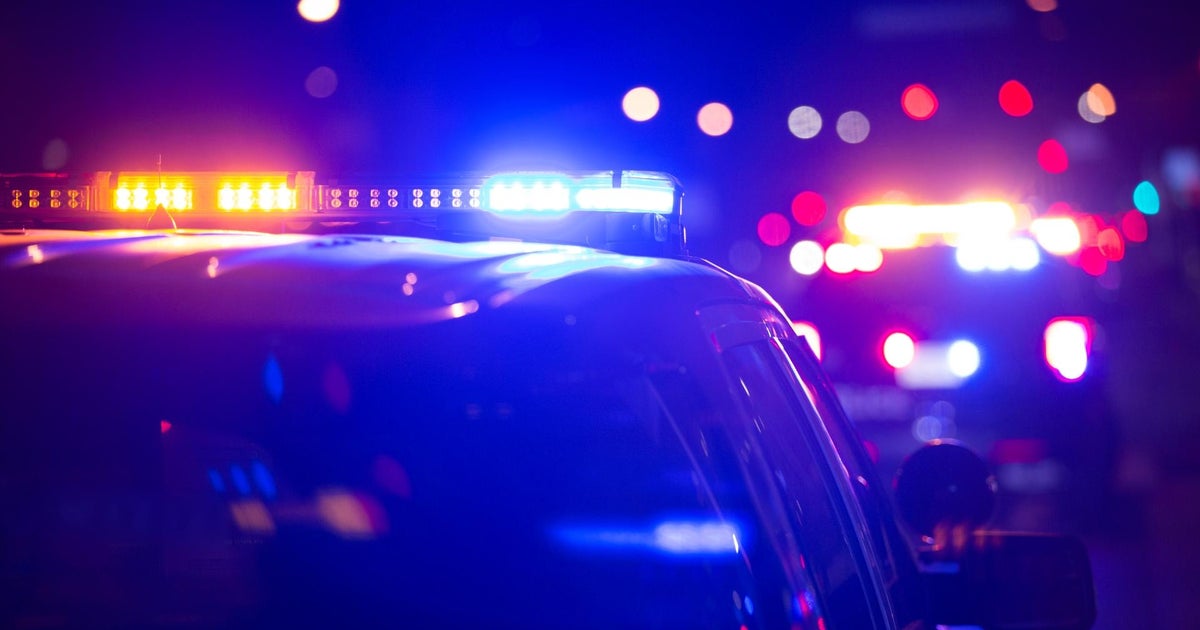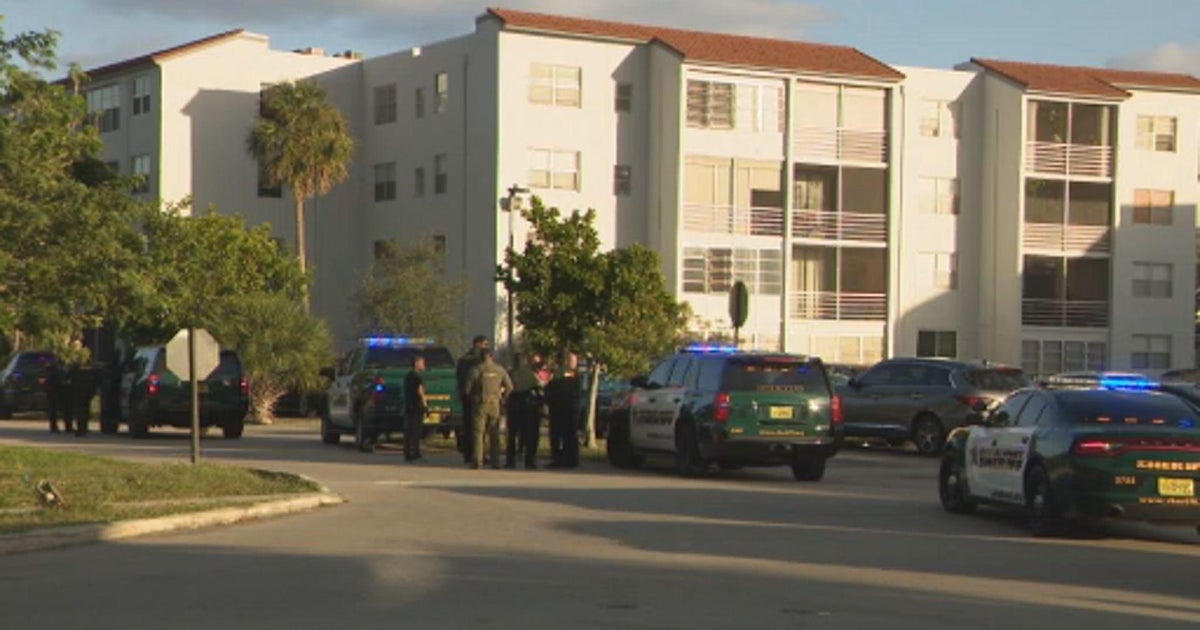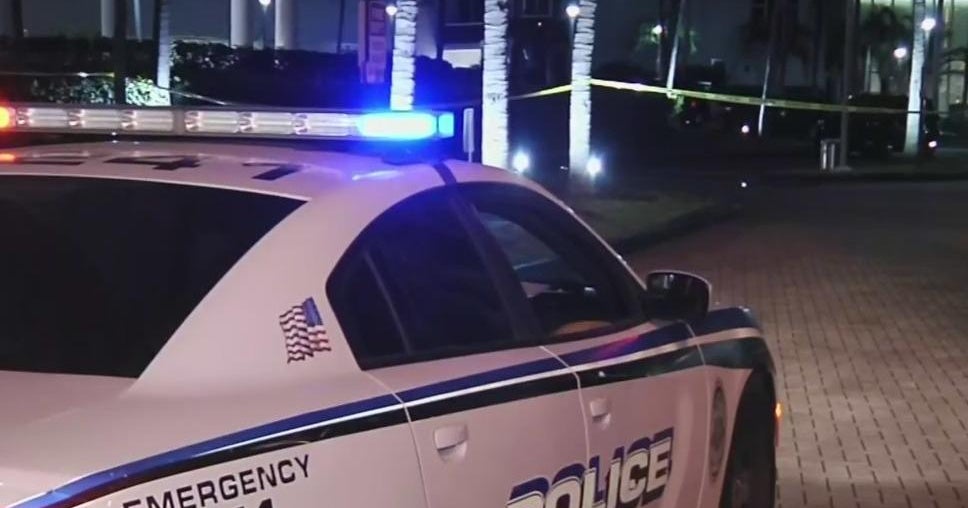Veteran Miami Herald Photographer Tim Chapman Retiring His Camera
MIAMI (CBS4) - Dare to ride the streets of Miami with Tim Chapman and he'll lay out the rules before putting the car in gear.
"You can ride with me if you don't mind smelling like a cigar, if you don't complain about how fast I drive," Chapman explains, before adding, "and you have to be willing to listen to Jimi Hendrix."
As Chapman lights one of his ubiquitous cigars, the flame grows so large it threatens to singe his eyebrows. Chapman ignores the budding inferno and instead reprograms a trio of police and fire department scanners for the he keeps on
"If we get a hit, a real good hit, I punch in `All Along The Watch Tower,' it's four minutes long, `If All Along The Watch Tower' has finished before I get there, I've missed the picture," he says. "And if you have to play it twice, you might as well turn around; you've missed the best photo."
Tim Chapman hasn't missed many great pictures in his 40 years as a photographer for The Miami Herald. Trolling the city he loves, he's captured its soul and its heartache one frame at a time.
"I'm basically a hunter news gatherer," he offers. "And it's fun. I can't think of anything else I would have rather done."
On Friday, December 21, the 62-year-old Chapman will turn off his scanners and retire. "I feel great," he says of his decision. "I put 40 years in and I never compromised. I'm a newsman. I'm just an old newsman."
Tracing his roots back to Kentucky, Chapman and his family moved to Hialeah in 1957 when he was seven years old - the same year he held his first camera.
"I won a camera recruiting the most people to Sunday School," Chapman tells CBS4's Jim DeFede. "It was a little pink camera with a white button. And my family went out to the Everglades and my first photo was of a great white heron. I liked that."
Some of Chapman's greatest pictures during his storied career were taken in the Everglades and Florida Keys: Capturing their quiet beauty and faithful inhabitants -- as well as their lurking dangers and shocking ferocity; ad of course he found their human denizens, like McDonald Johnson.
"He was 83 and I pulled along the road and I saw him walking," Chapman recalls. "He grew okra in the water and he had a cocked Smith and Wesson .38 in his back pocket."
Chapman knows how fortunate he was, turning a childhood hobby into a profession that has left him with countless memories as well as a chance to make a difference.
"You can change the world," he says. "You show people what's going on and they can make a decision."
Chapman started at the Herald in 1972 and travelled around the globe for the paper. He was there when the American hostages left Iran and arrived in Germany. He covered wars in the Middle East and throughout Latin America. And he watched as US troops landed in Haiti in 1994.
Chapman said Haiti is the one place in the world he gave up on.
"I won't go back," he says. "Since 1979 I've been photographing Haiti and trying to tell the story and make a difference. It's broken my heart so many times. It's just not for me anymore."
In 1978, Chapman was one of only four photographers to make it into Jonestown to document the aftermath of a madman.
"Being a photo journalist is a front seat ticket to the world," he says. "It really is."
But it has been telling the story of Miami where Chapman has truly excelled. Inside his house he reveals an entire room filled floor to ceiling with boxes.
"This is my archive - I've kept since 1972," he says. .
In those boxes, is the city's history.
Cocaine cowboys. River cops. And hurricanes.
He photographed the famous. (Muhammad Ali and Andy Warhol)
The beloved. (Marjorie Stoneman Douglas)
And those who would gain infamy. (OJ Simpson)
But it is the pictures of those who were at their most vulnerable - whose faces told the story - that live in our memory.
No story though affected Chapman as much as the Mariel boatlift of 1980. In photo after photo he explained the exodus. The most iconic of which still holds power today.
"Here's the color slide of the Mariel baby," he says.
That picture of a small child being held aloft amid a group of refugees, explained the desire of those fleeing Castro's island prison.
As we rode with Chapman during his final week at the paper, he was still following his routine, still looking for great pictures from Miami's neighborhoods. Walking into a Little Havana cigar shop through the back door, Chapman is greeted with a chorus of "Hola! Tim" from the women inside.
Chapman uses the shop as his office, transmitting his pictures by laptop while sipping Cuban coffee and watching them make a special blend of cigar just for him.
"This is really Miami. This is Miami right here," he says. "This is the best part of Miami, this and the Cuban coffee and the wonderful people."
He knows he is getting out at a time when newspapers are becoming extinct and good journalism is hard to find.
"The truth is there really is no such thing as the good ol' days," Chapman argues. "There were a lot of bad ol' days too. It goes in cycles."
The Herald he says is no different than any other news organization - where increasing profits is the goal.
"When I started it was owned by the Knight Brothers, they were great journalists and they were great businessmen," he notes. "But then corporations started buying newspapers because they were very profitable. And when you are a public company you like to keep making profit. It's just the way of the world."
He says he has no regrets.
"I feel confident that I have put everything into it," he says, "and I've cared" – he pauses for a moment and then continues: "I've just sometimes wondered if they cared as much as me."
Fittingly, his last assignment for the Herald was a shoot in the Everglades. He timed his retirement Friday to coincide with the completion of a house he's been building for a decade in a remote section of the Florida Keys. He's looking forward to the quiet.
"I listen to the scanners all day, its noisy, the traffic, people shooting each other, people dying," he says. "And the Keys house - you can sit on the porch and watch the sun rise; walk around the other side and watch the sun set; and you can enjoy and see who you are."



